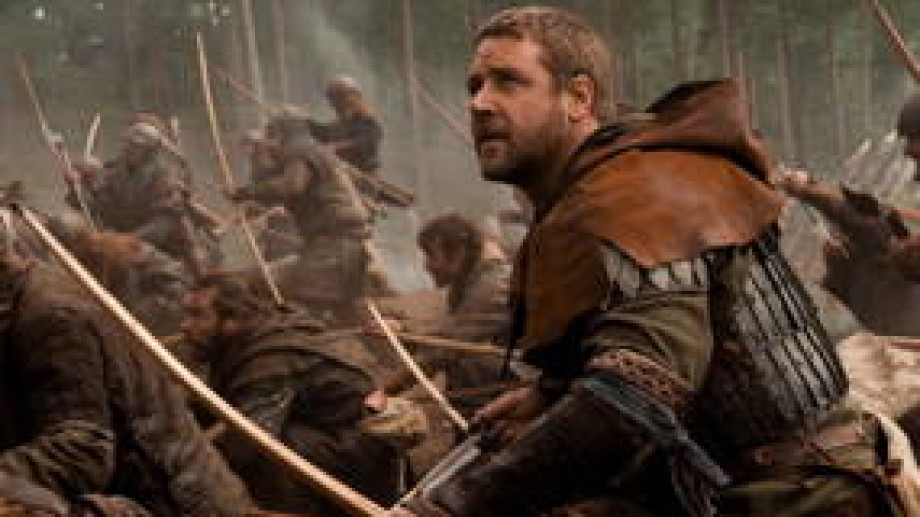
Tom Cruise in Legend
“Nothing bothers me more than a movie about the innocence of children,” said Canadian filmmaker Guy Maddin in a 2008 interview. “Children haven’t learned to repress [anything] yet. They’re just teeming with wonderful luridity.” Maddin seems to be one of the few adults who remembers just how uninhibited he was as a child, how eager to break every taboo in sight. It’s no wonder that few of the films we see as kids are as gleefully, guilelessly perverse as we ourselves were then. At least we have Legend.
Ridley Scott’s 1985 fairy tale runs about an hour and fifty minutes, but it’s imaginative enough to sustain itself for three times that long. In one three-minute stretch our hero (Tom Cruise, very earnest) dives into a sea of impossibly green algae to retrieve a love-token, a unicorn is ambushed amongst thick blankets of rose blossoms, and a house fills inexplicably with sheets of the brightest blue snow. Legend somehow manages to sustain that level of visual excess for its entire two hours. It’s exhaustingly beautiful.
Indeed, Legend delights in excess in practically every respect—it’s difficult to think of a film with fewer inhibitions. But for all its immodesty, Legend retains its innocence. It seems to come from a perspective where sexuality has not yet become a fact of life but remains a strange and troubling new prospect, one that deserves open and uninhibited investigation in all its forms: threatening and repulsive as well as comforting. Children might be more innocent than Guy Maddin gives them credit for, but their innocence compels them to breach taboos without fear of what they might uncover: to let in everything. Legend, too lets in everything.
In fact, it seems to specifically indulge the material other films and filmmakers would likely repress: the grotesque and shrill, at times the ridiculous. If Legend seems to come from the stance of a child looking in on the adult world and especially on adult sexuality, the resulting view favors extremes. We see sex function as flattery (Cruise telling a hideous bog monster she’s pretty to buy time as he unsheathes his sword), as deception (a lonely fairy impersonates Cruise’s bride-to-be to steal a kiss), and as the exercise of power. In Legend’s final stretch Tim Curry’s gloriously overwrought devil tries to seduce our heroine Lili (Mia Sara). Laughing (cackling maniacally, of course) at Lili’s love-conquers-all ideals, he proclaims that “the dreams of youth are the regrets of maturity.” We feared characters like this when we were young because we were terrified of becoming them. And though Curry’s wonderfully hammy performance makes it difficult, we should still fear this villain. We’ve met him, sometimes in ourselves.

Russell Crowe and Cate Blanchett in Robin Hood
Must Robin Hood compromise? Of all the stories we hear as kids, his is one of the most pragmatic. It recognizes that, against some devils, it might not be enough simply to believe in the hardiness of innocence. Here even the fairy-tale hero must lie and steal to resist a far more pervasive form of corruption, and for doing so he’ll be cast out of the world at large. Innocence can only survive in exile.
It’s a pretty unsparing worldview, and Scott’s 2010 Robin Hood refuses to sugarcoat it. If Legend was made from the perspective of a child becoming more and more aware of the threats to its own innocence, then Robin Hood feels like it was made by a jaded adult wondering if there’s anything of innocence left to salvage. Accordingly, the pastel-drenched dreamscapes of Legend have given way here to grimy, meticulous re-creations of 12th century England. If innocence is to survive in the world of Robin Hood, it must do so on its enemy’s terms—not in a fantasyland of its own creation, but in a world of flesh-and-blood, a world shaped by greed and self-interest. The wonderfully naïve moral universe of Legend never assigned the devil motives; his nature was evil by design. In contrast, the evil on display on Robin Hood is both crueler and more banal—a matter of practicality. For devils we now have a sneering king who oppresses his people out of a mixture of idleness and pride, and a brutish general who puts innocents to the sword to sow division and pave the way for his own political advancement.
It seems as though innocence, too, might have to abandon some of its ideals, make practical concessions. There’s not much stealing from the rich and giving to the poor in Scott’s Robin Hood, but there are more serious compromises: a particularly memorable scene finds Robin (Russell Crowe) torturing a captured soldier to learn his enemy’s whereabouts. Then there’s Robin’s marriage to Marion (Cate Blanchett), born not out of love but economic necessity. That compromise alone would be unacceptable to the heroes of Legend, who considered married love one of the last bastions of innocence in the grown-up world.
And yet this Robin does hold onto his innocence, though by doing so he marks himself as an exile: an exile from the economic and political machinations of the world at large, but not from the social world altogether. In fact, it’s by sharing in each other’s exile that the heroes of Scott’s <em>Robin Hood learn to redeem themselves. Robin and Marion's mariage is allowed to blossom into love only once they find themselves free from (or rather, cast out of) society—here as in Legend, romantic love allows innocence to survive and even prosper. Robin Hood’s devils may now cloak their evil in banality, but its heroes budge hardly an inch from those of Scott's previous fairy tale: earnest lovers, determined idealists, jaded innocents.
Legend screens Thursday at 8:45pm. Robin Hood screens Sunday at 1:15pm. See them together, or any two films in our complete Ridley Scott retrospective, and save with our double feature package!



